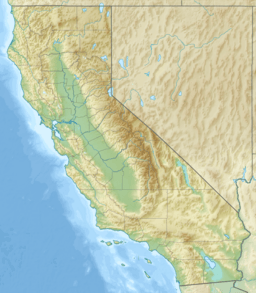Mopah Range facts for kids
Quick facts for kids Mopah Range |
|
|---|---|
| Highest point | |
| Elevation | 923 m (3,028 ft) |
| Geography | |
| Country | United States |
| State | California |
| District | San Bernardino County |
| Range coordinates | 34°16′23″N 114°44′19″W / 34.27306°N 114.73861°W |
| Topo map | USGS Savahia Peak SW |
The Mopah Range is a mountain range found in the desert areas of southeastern San Bernardino County, California. It's part of the Lower Colorado River Valley region.
Contents
Exploring the Mopah Range Geography
The Mopah Range sits right next to the larger Turtle Mountains. These mountains are located where two big deserts meet: the northern part of the Colorado Desert (which is part of the Sonoran Desert) and the southern edge of the Mojave Desert.
To the east of the Mopah Range, you'll find the Colorado River and the Whipple Mountains. To the west are the Iron Mountains. A place called Vidal Junction, California is to the southeast. Also, the Colorado River Aqueduct, a large water channel, runs to the south of the range.
Discovering the Turtle Mountains Wilderness Area
The Mopah Range is a special part of the Turtle Mountains Wilderness Area. This area features wide, gently sloping plains called bajadas. It also has dramatic volcanic peaks, tall spires, and steep cliffs that have been shaped by erosion over time.
The Mopah Range is home to two famous peaks known as Mopah Peaks. These peaks are made of rhyodactic rock or are volcanic plugs, which are like old volcano vents. The peak to the north is a well-known landmark called Mexican Hat. You can also find many natural springs and seeps (places where water slowly leaks out of the ground) in this area. The Mopah Range is considered part of the larger Lower Colorado River Valley region.
Wildlife and Plants of the Mopah Range
The Mopah Range is a unique place because it's where the Mojave Desert (often called the High Desert) and the Colorado Desert (known as the Low Desert) meet. This means it has a wide variety of plants and animals. For some species, the Turtle Mountain range marks the northern or southern limit of where they can live. For example, the endangered California fan palm (Washingtonia filifera) reaches its northernmost point here.
The main plants you'll see in the Turtle Mountains Wilderness Area are creosote bush and bur sage. You'll also find palo verde trees (Parkinsonia microphylla) and different types of cacti. In the dry riverbeds, called washes, you can find woodlands with plants like smoke tree (Psorothamnus spinosus), honey mesquite (Prosopis velutina), and catclaw (Acacia greggii).
Many animals call the Mopah Range home. You might spot desert bighorn sheep, coyotes, and black-tailed jackrabbits. Smaller animals include ground squirrels and kangaroo rats. Birds like quail, roadrunners, golden eagles, and prairie falcons fly overhead. On the ground, you might see rattlesnakes, the desert tortoise, and many kinds of lizards.
Fun Activities in the Mopah Range
The Mopah Range is a great place for outdoor adventures! You can enjoy hiking, horseback riding, camping, and backpacking. It's also a popular spot for photography.
Many people who enjoy rock hounding (collecting rocks as a hobby) visit this area. It's famous across the country for its unique chalcedony specimens, which are often called "Mopah roses." If you like hiking, you can visit natural palm oases like Coffin, Mopah, and Mohawk Springs.
 | Audre Lorde |
 | John Berry Meachum |
 | Ferdinand Lee Barnett |


